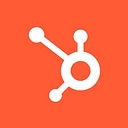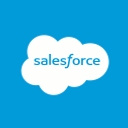In the world of digital marketing, managing campaigns, leads, and multiple channels manually is incredibly complex and time-consuming. Without the right tools, important follow-ups can slip through the cracks, leads may go cold, and delivering a consistent message across email, social media, SMS, and other channels becomes a major challenge. This is why marketing automation software (also known as marketing automation tools or apps) is so crucial for businesses. These platforms automate lead nurturing through drip campaigns and behavior-based triggers, segment your audience for personalized outreach, and coordinate multi-channel delivery of marketing messages. By offloading repetitive tasks to a marketing automation tool, companies can ensure every lead receives timely, relevant content – boosting engagement, conversion rates, and marketing efficiency.
- Lead Management & Segmentation: Organize and track leads in one place, grouping them by attributes or behaviors for targeted marketing.
- Automated Workflows & Drip Campaigns: Set up multi-step campaigns and automated sequences (like drip email campaigns) to nurture leads over time without manual effort.
- Behavior-Based Triggers: Set up rules that launch specific actions when a prospect takes certain steps (for example, automatically sending a follow-up message when someone fills out a form or clicks a specific link).
- Multi-Channel Campaigns: Deliver marketing messages across multiple channels (email, SMS, social media, etc.) from a unified platform for consistent outreach.
- Lead Scoring & Qualification: Automatically score leads based on their engagement and interactions, helping you identify the most sales-ready prospects.
- Analytics & Reporting: Track campaign performance (email open rates, web conversions, etc.) with dashboards and reports, and use those insights to optimize future marketing efforts.
Frequently Asked Questions
What is marketing automation software?
Marketing automation software is a platform (or suite of tools) that helps businesses automate and streamline their marketing workflows. It typically includes capabilities for email marketing, social media scheduling, lead nurturing, customer segmentation, and more – allowing these tasks to happen with minimal manual effort. For example, a marketing automation tool can automatically send follow-up emails or SMS messages based on a user’s actions, assign scores to leads as they engage with content, and trigger specific outreach when a prospect shows interest. In short, it’s the technology that lets marketing teams deliver personalized, timely campaigns at scale and track the results efficiently, all without executing each touchpoint by hand.
How does marketing automation improve lead generation and conversion?
Marketing automation improves lead generation and conversion by ensuring every prospect gets timely, personalized attention. The software can automatically follow up with new leads (for example, sending a welcome email or a special offer right after someone signs up), which keeps prospects engaged from the start. It also nurtures leads through well-timed drip campaigns and tailored content based on each lead’s interests or behaviors, increasing the likelihood they’ll move down the funnel. By tracking and scoring each lead’s engagement (such as email opens, link clicks, or website visits), the system highlights the most interested prospects so your sales team can focus on those more likely to convert. Overall, fewer leads slip through the cracks, and more of your marketing contacts ultimately turn into paying customers thanks to consistent, intelligent follow-up.
Who uses marketing automation tools?
Marketing automation tools are used by a wide range of organizations and roles. In larger companies, marketing departments (like digital marketing or demand generation teams) rely on these platforms to manage complex campaigns and nurture thousands of leads at scale. Small and mid-sized businesses, including startups, also adopt marketing automation to do more with fewer resources – automating emails, social posts, and lead follow-ups so a lean team or even a single marketer can handle what used to require a big staff. Typically, marketers are the main operators of these tools (a marketing manager or specialist sets up and monitors the campaigns). Sales teams benefit as well, since they receive more qualified leads (with scores and engagement data) handed off via the integrated CRM.
What features should I look for in a marketing automation app?
Important features to look for in a marketing automation app include an intuitive campaign builder (often with a visual workflow designer) for creating automated email sequences and multi-step campaigns, as well as robust contact management and segmentation so you can target different groups with personalized messaging. You’ll also want the ability to set up behavior-based triggers – for instance, automatically sending a specific email or SMS when a lead takes an action like clicking a link or filling out a form. Multi-channel support is key: the software should handle all the channels you use (email, SMS, social media, etc.) from one platform. Lead scoring is another valuable feature if your sales team needs to identify the hottest prospects; the system can assign points to contacts based on their engagement level to highlight who’s most interested. Of course, analytics and reporting are necessary to measure campaign performance (open rates, click-throughs, conversions) and help you refine your strategy over time. Finally, ensure the tool can integrate with your other business systems – especially your CRM – so marketing and sales data syncs up and you can leverage customer information across platforms seamlessly.
Can these tools handle multiple channels (email, SMS, social, etc.)?
Yes, most modern marketing automation platforms are designed to handle multiple communication channels. While email automation is a core feature of nearly all marketing automation tools, many platforms also let you manage campaigns via SMS text messaging, social media posts, and even online advertising from the same system. This means you can create a unified campaign that reaches your audience through email, texts, social media, and more – all coordinated and tracked together. However, capabilities vary by software; some specialize in certain channels or might require add-ons for things like social scheduling, so it’s important to choose a tool that supports the channels that matter to your business. In general, using one platform for multi-channel marketing ensures consistent messaging and makes it easier to see how all your marketing efforts are performing in one place.
Does marketing automation software integrate with CRMs?
Yes, almost all marketing automation platforms are designed to integrate with customer relationship management (CRM) systems. This integration is critical for aligning marketing and sales: it allows lead data (such as contact details, campaign engagement, and lead scores) to flow from your marketing automation tool into your CRM in real time. For example, when a lead reaches a certain score or performs a high-value action, the system can automatically alert a sales rep or create a task in the CRM so the sales team can follow up promptly with full context. Likewise, if a sales rep updates the status of a lead or adds notes in the CRM, that information can flow back to marketing. In short, marketing automation software is built to work hand-in-hand with CRMs – ensuring both teams stay on the same page with up-to-date information on every lead or customer.




















